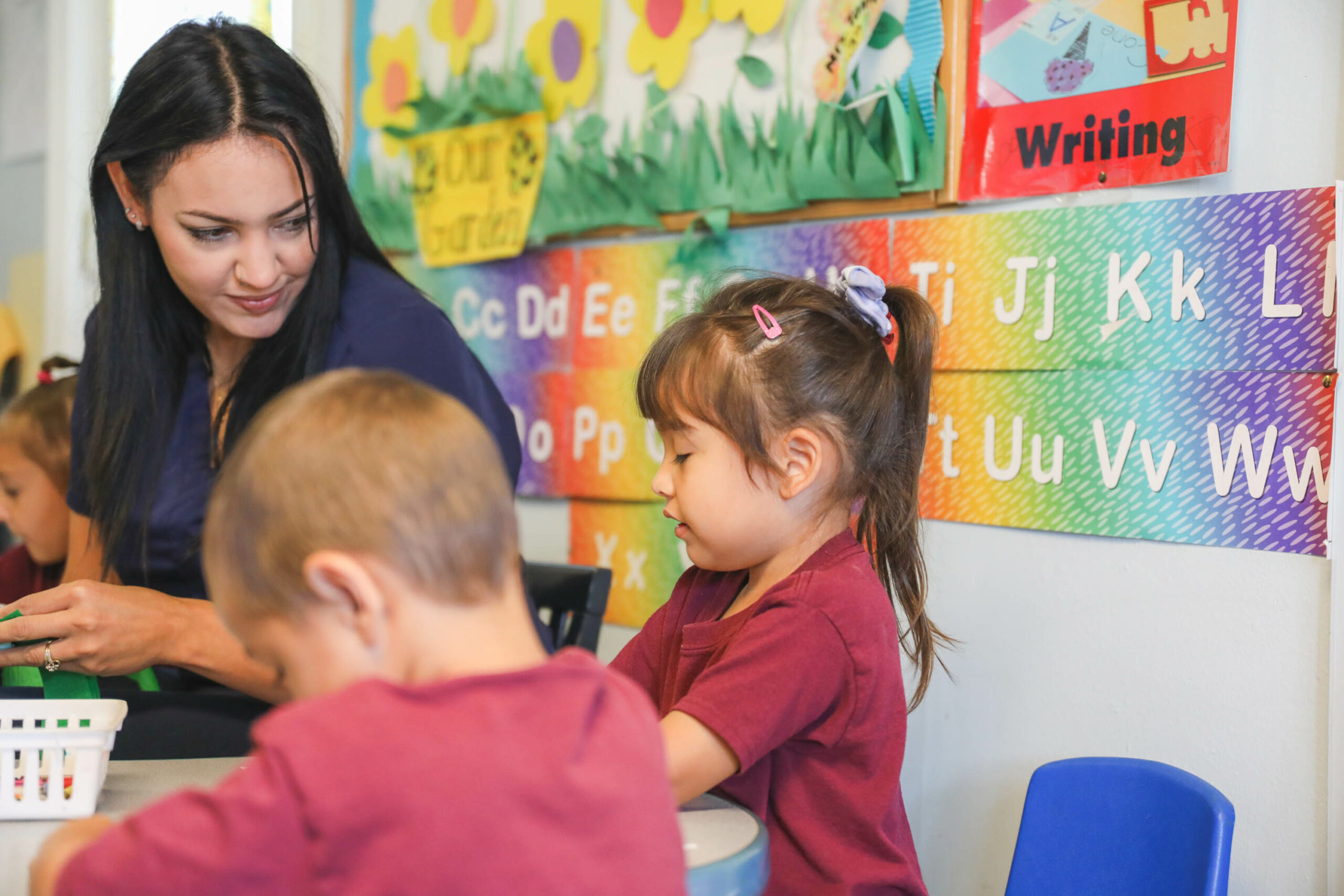The Massachusetts Early Childhood Support Organization (ECSO) initiative is now in its sixth year of meaningful contributions to early learning experiences for program leaders, educators and children across the state. A record 80 potential partner organizations applied to participate in this project for the 2025-2026 fiscal year. The number of programs, leaders and educators has also steadily increased, with educators doubling in just one year. This growth reflects the excitement and momentum around the program as it works to improve early childhood outcomes in Massachusetts.
As of June 2025, there are now five learning cohorts, leading to a total of about 43 programs, 90 program leaders, 228 classrooms and 630 educators having participated. These numbers are still rising as a sixth cohort is onboarded, comprising ten programs and 51 classrooms alone.
The ECSO initiative is a three-year coaching and professional learning journey with the goal of improving instructional practices, implementing curriculum, engaging in authentic child assessment and overall improving the quality of children’s education.
5 cohorts
↓
43 programs
↓
90 program leaders
↓
228 classrooms
↓
680 educators
What do the three years look like?
Year One → Engagement Leaders receive an Instructional Leadership in Early Childhood Education (ILECE) course and participate in the Early Learning Coaching Certification and CoP (Communities of Practice). Lastinger coaches teach each classroom in the center, supporting the educators’ teams + two hours of leadership team coaching per month.
Year Two → Engagement Leaders implement the CoPs and create a plan with their Lastinger coach in order to transition from Lastinger’s coaching to the leadership team members. Leaders continue to receive up to two hours a month of coaching from Lastinger coaches while being offered opportunities to take Lastinger courses and participate in offered training sessions.
Year Three → Lastinger coaches step back but continue to be engaged with the leadership team to support the sustainability of coaching and CoP facilitation. Engagement leaders continue to engage in CoP with their cohorts while engaging in any courses or training offered across the state.
The programs accepted into ECSO receive support from partners who work closely with early childhood educators and leadership teams to share success and combat potential challenges in the spirit of collaboration, problem-solving and continuous improvement. The UF Lastinger Center directly serves over 200 classrooms, playing a pivotal role in supporting these teams in understanding the importance of building a strong, collaborative culture through the engagement of the Communities of Practice model. Through this sustainability for the program, we create powerful practices that transform the educational landscape in Massachusetts.
“I truly believe the increased interest [in the ECSO program] is from the field learning about the initiative from other programs that have been involved and hearing that it was a beneficial use of their time investment,” said Karen Osarenkhoe, implementation specialist at the UF Lastinger Center. “The initiative supports the program as a whole and improves staff morale, which is low across the field, well beyond our state borders.”
The new iteration of the grant allowed the program to include educator coaching. In doing so, the program is receiving an increase in enthusiastic support. By having direct coaching in the classrooms, educators can improve their practices to build capacity in their leadership teams.
“The observations and data that my Flamingo coach provided helped me to reflect on how I teach and have helped me improve my teaching strategies. During my coaching journey, I feel like I have been more successful in and outside of my preschool classroom by encouraging the children to ask more open-ended questions to help extend our conversations,” said a preschool educator from The Children’s Center of Brookline.

ECSO’s partners have defined the work conducted in the first five years of implementation of this program. Through this collaboration, the program’s future successes can be achieved with a strength-based problem-solving approach as it continues on in this new six-year grant cycle. The dedication to identifying trends while providing feedback has continuously transformed the program into what it is today.
Dove Nest, a leader on the leadership team, said, “I felt that one of the biggest successes was how you helped create a space where we could think critically, reflect honestly, and grow as both individuals and a team. You consistently encouraged meaningful dialogue and helped us unpack challenges in a way that felt supportive but also intentional.”
If you would like to learn more about the UF Lastinger Center’s involvement in Massachusetts, please contact Early Learning Implementation Manager Anna Ring at anna.ring@ufl.edu or Karen Osarenkhoe at karenosarenkhoe@ufl.edu.
